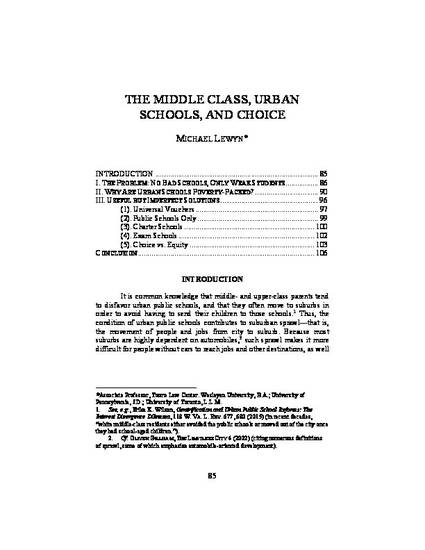
Article
The Middle Class, Urban Schools, and Choice
Belmont Law Review
(2017)
Abstract
It is common knowledge that middle- and upper-class parents tend to disfavor urban public schools, and often move to suburbs in order to avoid having to send their children to those schools. Thus, the condition of urban public schools contributes to suburban sprawl- that is, the movement of people and jobs from city to suburb.
This article discusses a variety of possible solutions to the unpopularity of urban schools among middle-class parents. Part I of the Article suggests that this problem is a cause as well as a result of middle-class flight: that is, urban schools have poor reputations because their students come from lower-class backgrounds, thus causing poor test scores, thus causing poor reputations, thus causing additional middle-class flight. Part II of the Article describes the legal doctrines that have led to the status quo. Part III discusses the pros and cons of several policies that might lure middle-class families into cities, focusing on policies designed to enhance parental choice. The Article concludes that each of these solutions could make cities more appealing to affluent parents, but that no solution is cost-free.
Keywords
- sprawl,
- school choice,
- vouchers,
- charter schools,
- education
Disciplines
Publication Date
2017
Citation Information
Michael Lewyn. "The Middle Class, Urban Schools, and Choice" Belmont Law Review Vol. 4 Iss. 1 (2017) p. 85 - 107 Available at: http://works.bepress.com/lewyn/128/
